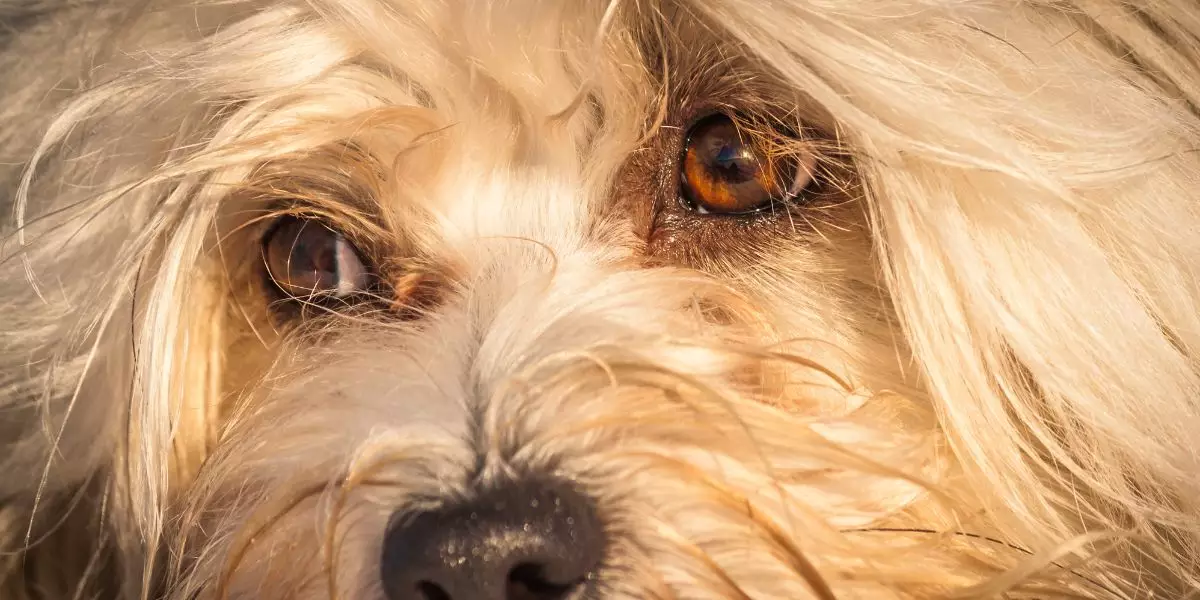As you will understand, improving eye health is an important aspect of your dog's life. This involves regular examinations, healthy eating and an ideal routine for their eyes. If you have decided to improve your dog's vision in the coming months, you can do so through each of the following steps. If you have any doubts, consult your veterinarian or veterinary hospitals.
Table of Contents
ToggleAge-related loss of vision may occur in dogs when their vision begins to decline.
Did you notice that your dog's sight is no longer what it was? If you do, you're not alone.
There are many different types of vision loss in dogs. They can range from poor night vision to blindness partial blindness. And if some cases can be treated with medication or surgery, there is no cure for the most common cause: age-related vision loss.
However, there are steps you can take to help your dog live a happy life despite the decline of his sight.
If your dog has a disease that affects the eye, it is sometimes possible to treat it.
The eyes are kind of a window on your dog's health. If your dog suffers from an eye disease, it is sometimes possible to treat it.
Treatment is often the same as human treatment. In some cases, physicians will use topical drops, but in others they may recommend oral medication or surgery.
Some diseases are not curable, but they can be managed through medication and routine visits to an ophthalmologist. It is important to treat these diseases because they can lead to blindness if they are not treated.
If you notice changes in your dog's eyes, such as strabism or redness, contact your veterinarian immediately!
Dogs may lose or damage their sight as a result of eye trauma.
Dogs who have suffered eye trauma as a result of an accident or injury may suffer permanent damage to their vision. It may be a partial or total loss of vision of one or both eyes, depending on the severity of the injury.
If you think your dog has lost sight of one or both eyes, go to an animal hospital immediately. The animal hospital can examine your dog and determine if the condition can be treated.
Diagnosis and treatment of vision loss in dogs are important.
Vision loss occurs in dogs through behavioural symptoms and may be associated with a number of different medical conditions. The first step in the diagnosis of vision loss is an assessment by a veterinarian. It will perform a complete physical examination, including an eye assessment, and may recommend laboratory tests. If the veterinarian suspects that the cause of vision loss is related to an underlying medical problem, he or she may recommend additional tests, such as blood tests or X-rays. For certain medical conditions associated with vision loss, treatment can help restore or preserve vision. In other cases, treatment can alleviate symptoms and improve comfort without restoring complete vision. It is important to discuss with your veterinarian the cause of vision loss, prognosis and treatment options for your animal.
There are supplements for certain types of vision loss in dogs.
Dogs may suffer from vision loss for a number of reasons. Sometimes the cause is hereditary, and sometimes the cause may be an underlying condition, such as diabetes or thyroid disease.
If your dog has been diagnosed as suffering from a disease leading to loss of vision, supplements can help as the more reinforced Vision supplement formulated by the Floralpina laboratory. Supplements that help dogs with vision loss include blueberry extract, euphorb extract, vitamin A, vitamin C, vitamin E, lutein, zeaxanthin and omega-3 fatty acids.






